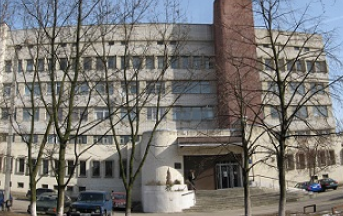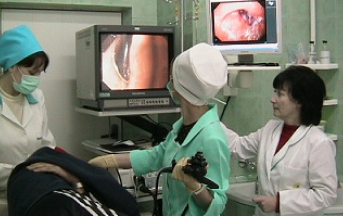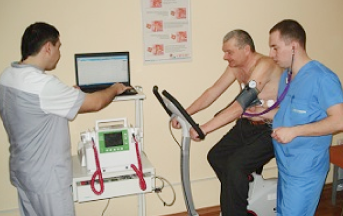
In 1986, by order of the Council of Ministers of the USSR, due to the great social significance of therapy as the main branch of medical science and practice, the branch was reorganized into the Kharkov Research Institute of Therapy, and in 1992 - into the Ukrainian Research Institute of Therapy, since 2003 - State institution “Institute of therapy named after L.T. Small National Academy of Medical Sciences of Ukraine ".
Taking into account the national and international recognition of the Institute's activities, its scientific and practical achievements in the field of therapy, a significant contribution to the development of health care, on April 25, 2013 by the decree of the President of Ukraine V. Yanukovych, the Institute was granted the status of National.

This is one of the leading institutions in the system of the National Academy of Medical Sciences and the Ministry of Health of Ukraine, where they are engaged in fundamental and applied scientific research in the field of therapy, the development of methods for optimal pharmacotherapy of the main diseases of the cardiovascular system, gastrointestinal tract, respiratory organs, kidneys, epidemiology of chronic non-communicable diseases and optimization of their multifactorial prevention.


development of new medical technologies based on the study of genetic, molecular, biochemical methods for diagnosing diseases of internal organs, monitoring of epidemiological indicators of chronic non-infectious diseases of internal organs in Ukraine.
The priority in the activity of the Institute is - cooperation with scientific organizations and higher educational institutions, including foreign ones, in the profile of the Institute.

as well as a genetic profile, for the individualization of preventive and therapeutic measures.
- creation and implementation of a unified program for monitoring and modifying risk factors for major chronic non-infectious diseases (cardiovascular, diseases of the digestive system, respiratory system, urinary system, diabetes mellitus, etc.) at the population, family and individual levels.
- development of a unified methodology and conducting research to determine epidemiological indicators, predictors and factors for predicting the main non-communicable diseases (incidence, prevalence, etc.): the cardiovascular system, the digestive system, respiration.